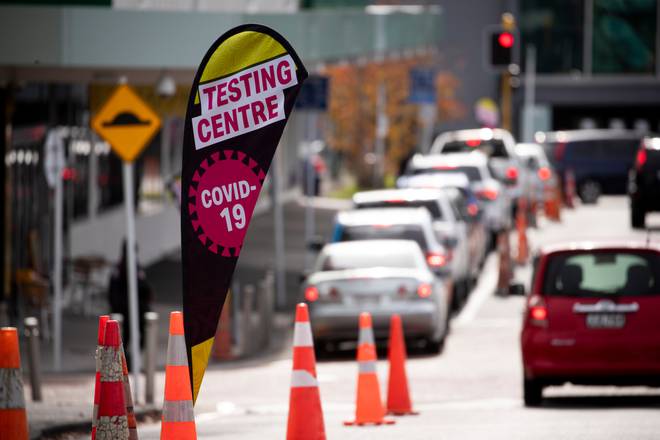
Of today's new cases, 127 are in Auckland, 13 are in the Waikato, four are in the Bay of Plenty and one is in Canterbury.
In a statement, the Ministry of Health advised of the death of patient with the virus at Auckland City Hospital.
The patient, who was in their 80s, was admitted to hospital on November 17.
Seventy-seven people are in hospital, eight of them in intensive care.
All but four of those in hospital are in Auckland. Three are in the Waikato and one is in Rotorua. The average age of those in hospital is 48.
There are two new cases in Ruakaka, Northland today - but they will be included in tomorrow's figures.
The 13 new cases in Waikato today comprise six in Te Kūiti, three in Huntly, two in Hamilton, one in Te Kauwhata, and one in Ōtorohanga. All are under investigation for links to previous cases.
All four of the Bay of Plenty cases have been linked to previously confirmed cases. One is based in Kawerau, one is in Tauranga and two are in Te Puke. The Kawerau case is a close contact of a previously confirmed case, and has been in isolation for the past week.
Today's Canterbury case was announced yesterday, but is being officially added to the case numbers today.
The Ministry said 85 of today's new cases are yet to be linked.
There were also four new cases in managed isolation today.
Of those in Northern Region hospitals, 56 percent are unvaccinated. Those who have received only one dose, or received their second dose fewer than seven days before being infected, make up 24 percent of hospitalised cases.
Fourteen percent of hospitalised cases were people who were fully vaccinated. The vaccination status of the remaining cases isn't known.
The seven day rolling average of community cases is 183.
Today's figures come as the discovery of a new variant of concern in southern Africa prompts a number of countries to halt air travel from the region.
Epidemiologist professor Michael Baker told The New Zealand Herald that New Zealand should also consider putting countries from southern Africa on its very high-risk travel list.
"I'm sure the actual number of travellers to New Zealand from those countries is probably tiny," he said.
"I think it would probably be relatively easy to put those countries in the same grouping as Papua New Guinea (already on the list) as the highest risk and that does give you extra precautions."
Baker said that the real threat of the new variant was how resistant it was to vaccines.
"If this turns out to be a real threat to the effectiveness of vaccines, which is the main worry, then this might mean we have to review our plans for January and February next year on relying on home isolation entirely," he said.
"But look, that's really leaping ahead, it's important not to catastrophise and we need to wait for more information."
Deputy Prime Minister Grant Robertson said yesterday a travel ban on countries where the variant was present would depend on public health advice.
"If we need to take action, we will," he said.
- additional reporting RNZ












